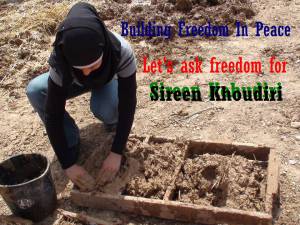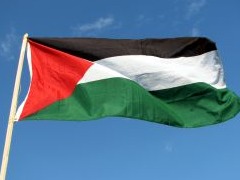-
UPDATED: Palestinian activist arrested in night raid in Nablus
07th January 2014 | International Solidarity Movement, Nablus Team | Nablus, Occupied Palestine Updated 10th January: Sireen Khudairi was released at 17:15 on the 8th of January. Sireen was brought inside Salem Court at 10:30am after being made to stand outside for an hour with her hands and feet shackled and without a jacket. Once brought into the courtroom […]
-
Two international activists to be deported after their arrest is declared illegal
09th January 2014 | International Solidarity Movement | Occupied Palestine Yesterday, Wednesday 8th January, at approximately 11am in Khalil (Hebron), Vincent Mainville and Fabio Theodule (Swiss and Italian citizens respectively), were arrested by Israeli border police officers. The two international activists were first detained while trying to stop Israeli forces firing live ammunition and tear gas […]
-
Illegal settlers burn two cars in the village of Madama
08th January 2014 | International Solidarity Movement, Nablus Team | Madama, Occupied Palestine Today, the 8th January 2014, at approximately 3am settlers entered the Palestinian village of Madama, south of Nablus and set fire to two cars. The cars were parked in the village center beside the home of the car owners. A villager from Madama and owner of one […]
Action Alert An Nabi Saleh Apartheid Wall Arrests BDS Bethlehem Bil'in Cast Lead Demonstration Denial of Entry Ethnic Cleansing Farmers Gaza Global Actions Hebron House Demolition International law Israeli Army Jerusalem Live Ammunition Nablus Ni'lin Prisoner Ramallah Rubber-coated steel bullets Settlement Settlers Settler violence Tear-Gas Canister Video



